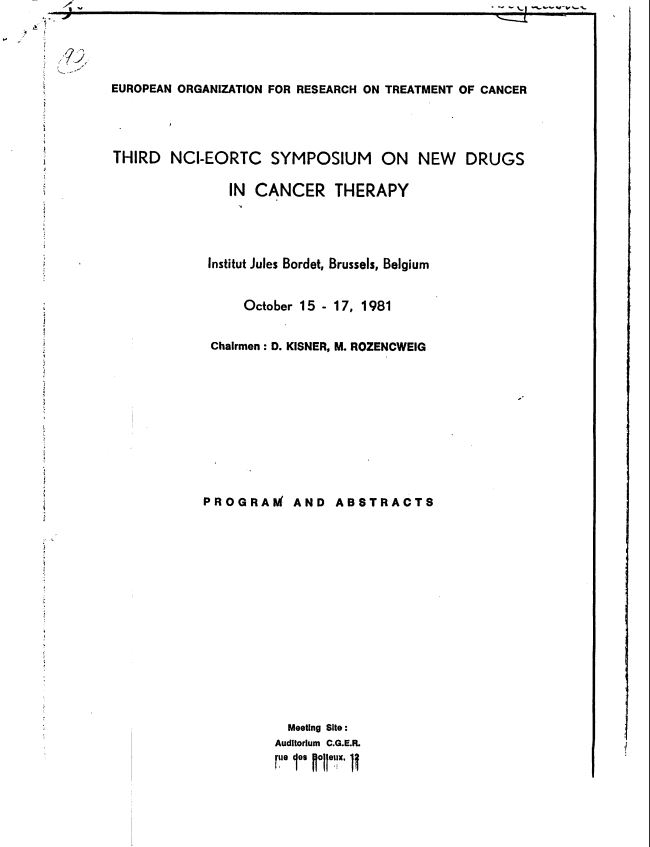90 – Differential susceptibility of cancer and normal DNA templates allows the detection of carcinogens and anticancer drugs
1981
Authors : M. BELJANSKI, L. LE GOFF, M.S. BELJANSKI
European Organization for Research on Treatment of Cancer
Third NCI-EORTC Sympmposium on new drugs in Cancer therapy, Institut Bordet, Bruxelles, 1981.
Available in English only
ABSTRACT: Based on the differential template activity exhibited by DNA isolated from cancerous and healthy human or animal tissues, the Oncotest is an accurate and rapid assay for the screening of carcinogenic compounds. Thus, in the presence of all necessary components for radioactive DNA synthesis by DNA polymerase, carcinogenic compounds, antimitotic drugs (and miscellaneous compounds), at given concentrations strongly stimulate the synthesis of DNA isolated from different cancer tissues, but only slightly enhance that of DNA from healthy tissues. Those carcinogens which cannot be characterized as mutagens in the Salmonella assay system, behave as carcinogens in the Oncotest. Carcinogenic potential of steroids can be shown by using the DNA from steroid hormone target tissue. There exists a common molecular mechanism through which carcinogens stimulate cancer DNA in vitro synthesis. Cancer DNAs are destabilized and in the presence of carcinogenic substances there is further DNA strand separation which accounts for the enhanced DNA synthesis. A correlation between in vitro cancer DNA synthesis, DNA strand separation and in vivo multiplication of cancerous cells can be demonstrated. Our assay system allows to detect those substances which selectively inhibit cancer DNA synthesis without affecting, in an appreciably way, that of DNA from healthy tissues.Voir le document
Partager
uncode-placeholder




